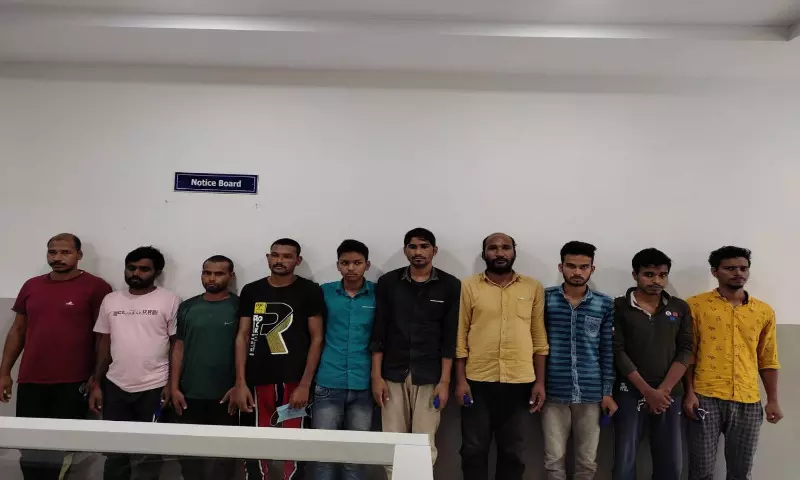How Jharkhand gang posted fake customer care numbers on Google, defrauded people
The gang purchased SIM cards from different places and posted the numbers as the “customer care numbers” of Gpay, Phonepe, various e-commerce shopping sites and other services on Google
By Newsmeter Network
Hyderabad: The Rachakonda cyber crime police on Monday arrested 10 persons from Jharkhand's Deoghar district involved in cyber fraud.
They have been identified as Zamil Ansari (26), Barzahan Ansari (32), Akhlak Hussain (27), Sarfaraz Ansari (23), Siraj Ansari (41), Sushil Mandal (30), Suni Kumar Das (24), Shekar Kumar Das (19), Vinod Das (19), and Ramcharan Das (20).
The gang purchased SIM cards from different places and posted the numbers as the "customer care numbers" of Gpay, Phonepe, various e-commerce shopping sites, banks, and other online services on Google. When a customer contacted these numbers by searching for them on Google, the gang would impersonate as the customer care representative of the said companies. They promised to refund the amount or solve their problems and siphon off their money.
The gang would tell the callers that there was a cashback offer and then sent them notifications to confirm their Phonepe, Gpay, or Paytm numbers. The accused instructed the customers to open a new Gpay, Phonepe, and Paytm apps on their mobile phones and asked them to enter their bank details, UPI pin, and other details. In this way, they fraudulently transferred money to their accounts.
Many times, people were forced to install apps like Teamviewer, Quick Support, and AnyDesk through which the gang gained remote access to their mobile phones and transferred money into their accounts which were procured fraudulently. Later, the money was transferred to e-commerce wallets and Paytm accounts.
Fake KYC updates; targeting job seekers
The gang also sent bulk messages to several phone numbers which were collected from third parties. The messages said their numbers, Paytm, and bank accounts KYC are being suspended and asked people to contact a WhatsApp number to update their KYC. If any person contacted the number, then the gang sent links to Teamviewer, Quick Support, or AnyDesk apps and gained remote access to their mobile phones.
They also posted ads on social media platforms and dating apps and provided contact numbers for chats, call girls, and escort services. Once a person contacted them, the gang threatened to upload their chat video on social media and blackmailed them.
They also collected information about job seekers from third parties and sent bulk SMSes. Once they responded, the gang told them their resume had been shortlisted by reputed companies and asked for money.
The gang was operating across the country, including in Telangana and Andhra Pradesh. They also confessed that after committing the offences they changed their numbers and phones to escape from the police.